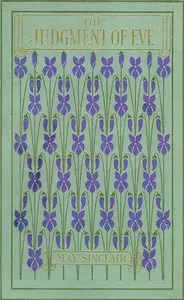"Audrey Craven" by May Sinclair is a story set around the experiences of Miss Audrey Craven, a fascinating young woman trying to find her way in a world full of social expectations. The story looks at ideas about who we are, how we connect with others, and what gives our lives meaning, mostly through Audrey's relationships with her cousin Vincent and a man courting her, Ted Haviland. Audrey first appears at a dinner party, where she is admired but wonders if there is more to her than just her looks and popularity. Although the novel is full of opportunities to explore who she is, Audrey is stuck between what others want for her and her own desire to discover her significance. The beginning of the story prepares the reader for a look into her thoughts and feelings, as well as the bonds that might affect her search for her role in life. Through detailed descriptions of the characters and conversations, Sinclair encourages readers to understand complex human feelings and the search for what is real.

Audrey Craven
By May Sinclair
In a world of high society, a beautiful woman searches for something more than admiration, grappling with expectations and her own desires.
Summary
About the AuthorMay Sinclair was the pseudonym of Mary Amelia St. Clair, a popular British writer who wrote about two dozen novels, short stories and poetry. She was an active suffragist, and member of the Woman Writers' Suffrage League. She once dressed up as a demure, rebel Jane Austen for a suffrage fundraising event. Sinclair was also a significant critic in the area of modernist poetry and prose, and she is attributed with first using the term 'stream of consciousness' in a literary context, when reviewing the first volumes of Dorothy Richardson's novel sequence Pilgrimage (1915–1967), in The Egoist, April 1918.
May Sinclair was the pseudonym of Mary Amelia St. Clair, a popular British writer who wrote about two dozen novels, short stories and poetry. She was an active suffragist, and member of the Woman Writers' Suffrage League. She once dressed up as a demure, rebel Jane Austen for a suffrage fundraising event. Sinclair was also a significant critic in the area of modernist poetry and prose, and she is attributed with first using the term 'stream of consciousness' in a literary context, when reviewing the first volumes of Dorothy Richardson's novel sequence Pilgrimage (1915–1967), in The Egoist, April 1918.













